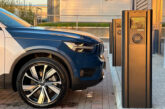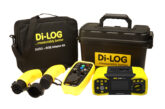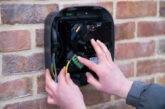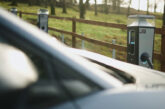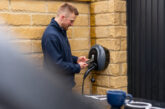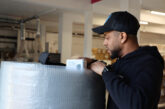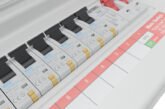
David Sweetman, Group Marketing and Business Development Director at Di-LOG Group, ponders whether your next multifunction tester should be an EV MFT.
These days, there are many reasons why electricians should consider a multifunction installation tester with Electric Vehicle (EV) testing capability when they’re investing in new test equipment. Let’s look at some of the key benefits of doing so:
Future proofing
According to the Climate Change Committee (CCC), the transition to electric vehicles (EVs) will be one of the most important actions to achieve the UK’s Net Zero target.
Today’s EV market is estimated to be around 400,000, which includes all fully electric and plug-in hybrid models and equates to 1% of all UK vehicles. By 2032,this number is expected to accelerate to 23.2 million (55% of all UK vehicles) and by 2050 the figure is predicted to reach 49 million (100% of all UK vehicles).
Currently, there are approximately 33,000 public charging points for around 400,000 plug-in electric vans and passenger vehicles. In order to grow the UK’s EV fleet to 23.2 million EVs by 2032, the CCC estimates 325,000 public charging points will be needed. These numbers do not include the EV chargers that are installed at homes and workplaces.
So, there is every possibility that you will be installing EV chargers in the future if you are not doing so already.
Should your next installation tester have the functionality to check the effectiveness of DC leakage protection installed within the EV charger? I believe the answer to the question is “yes” in accordance with BS7671:2018:AM2 –Chapter 64 section 3 (643) titled ‘Testing’.
Subsection 643.10 ‘functional testing’, states that: “protective devices shall be submitted to a test of their function, as necessary, to check that they are properly installed and adjusted”.
Di-LOG’s EV test equipment range
Di-LOG’s new DL9100 series MFT incorporates the DL9120 and DL9130 EV with both products boasting DC capability, paving the way for a host of tests specific to the EV and PV sectors; mainly the ability to conduct a Type B (Pure DC) RCD test.
The new DL9100 range is Di-LOG’s most intelligent tester to date with a fully auto-sensing high current Loop/PSCC test that will automatically detect if the user is conducting either a 2-wire or 3-wire test without the need to select a specific setting. Fitted with a new high-contrast RGB colour screen with a full secondary display, results are held on the screen with the added benefit of colour-changing screen alarms when specific triggers or warnings are met.
Having full flexibility whilst on-site is paramount and with the addition of a variable RCD test, the user can dial in any specific value required to safely conduct the test.
Safety first
Both the DL9120 and DL9130EV have DC capability. The DL9130EV hosts additional EV and time-saving features such as Zmax (maximum Earth Loop) and Rmax (maximum R1+R2/R2) both designed to aid the user. The DL9130EV has a full 6mARDC-DD test to indicate the DC safety protection is working on all modern EV chargers. Excessive DC current on an RCD protecting AC supply could result in the failure to trip when an AC fault occurs.
For full EV verification, the DL9130 EV can be switched to full Auto EV mode. The EV Auto Sequence performs a cycle of full RCD tests, checking the EV charger along with the Type A RCD. All results are then recalled easily at the press of a button.
Simplistic
Modern-day test equipment tends to host an array of features that offer fantastic value for money. However, more often than not, this can create test equipment with complex menu protocols when all you really want to do is rotate a dial, press a button and go. The DL9100 series continues to adopt this approach with a new intuitive user interface.
British manufacturing
If you still require some convincing, maybe you should consider the fact they you’ll be supporting UK manufacturing. From time-to-time, things don’t always go quite to plan and like any electronic device that is designed to work in the most extreme environments, there is always the odd hiccup, so to speak.
With UK-based manufacturing, research,development and design teams, issues can be quickly found and resolved –without your equipment potentially seeing more of the world than yourself!
Di-LOG is proud to support British manufacturing by designing and building our specialist safety test equipment in the UK. All of our 18th Edition multifunction testers and PATs have a UK-based R&D team dedicated to designing, building and delivering the most up-to-date technology to meet the continuous needs of our customers.
Get more details about Di-LOG’s range of EV test equipment here



